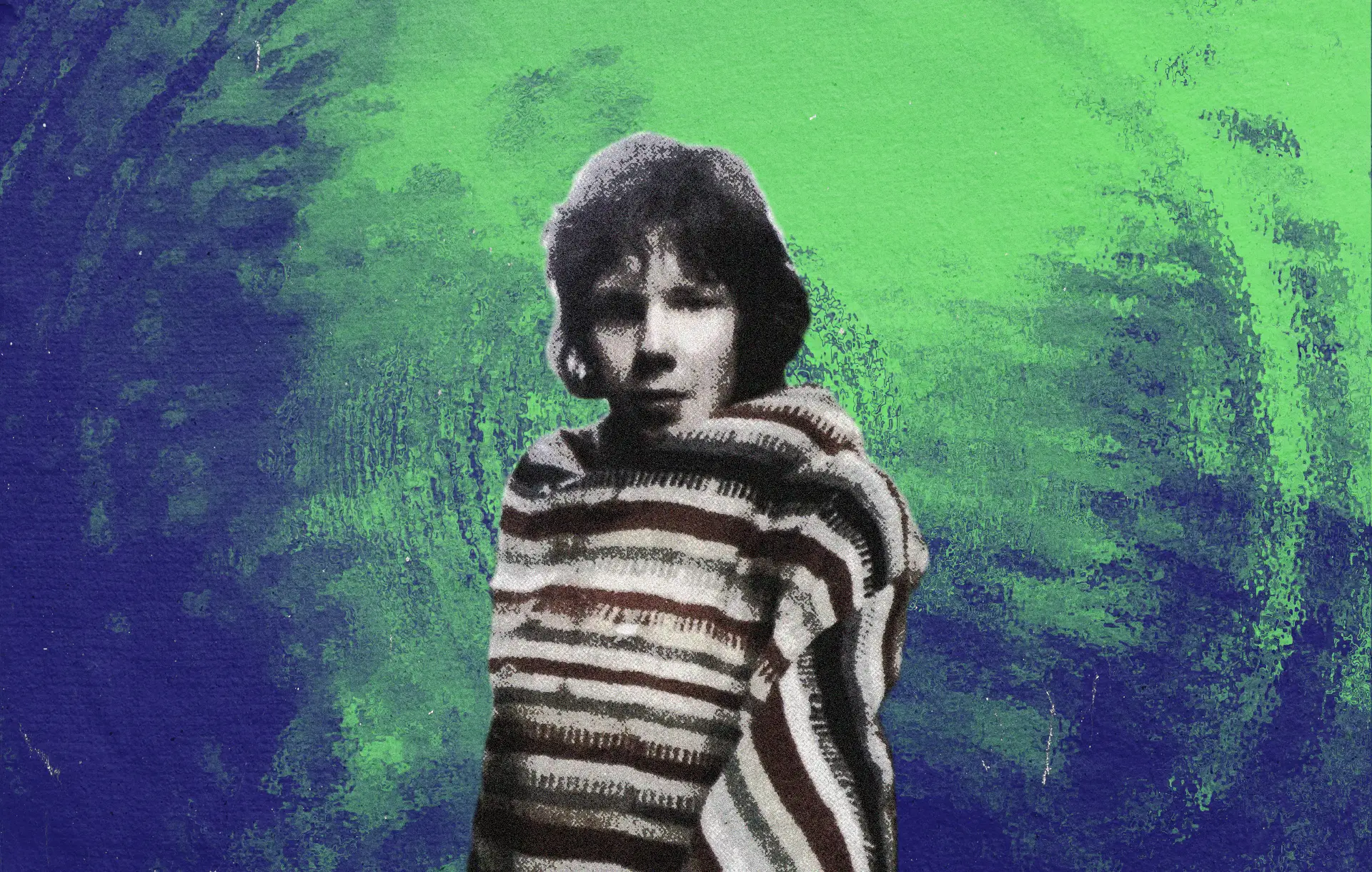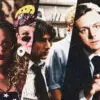Unknown and enigma seem to remain keywords about British singer-songwriter Nick Drake. It is a name on many lips of the ever-growing numbers of his fans, yet when Drake’s three albums came out (1969-1972) they never sold more than a few thousand copies.
Drake seems to have been a complete introvert, an enigma even to his close family, as they never really found out why he committed suicide back in November 1974. He seems not to have had many real friends, refused to give interviews, and was uneasy playing live concerts.
As his sister Gabrielle Drake, who wrote a book about her brother explains, “mostly Nick was uncommunicative and occasionally he’d become talkative and you hung on his every word even though, very often, one didn’t know what they meant because he’d talk in riddles.”
Yet, there seems to be this inner line Drake strikes with his listeners that made his stature grow as time passed. As British gardening writer and broadcaster Monty Done says, “When the world seemed too remote, too difficult to negotiate, I recognized in him a spirit brave and brilliant enough to articulate in music what was an incoherent fog within me.”
This seems to have made Drake more than just a cult figure after he was gone, with numerous artists covering his music, from pop to jazz, his music appearing in films, and some 14 tribute albums devoted to his relatively brief music catalog. (The Cure is said to have taken its name from a Nick Drake line about “a troubled cure for a troubled mind”).
Jennie Rothenberg Gritz in her article on Drake in The Atlantic thinks that he was “too ethereal to compete with 1970s showmen like David Bowie and Elton John. But he was the perfect musician for the digital era.” Where was streaming in the early ’70s?
From Rangoon to Tanworth-in-Arden
Drake was born in Rangoon (now Yangon) in then Burma (now Myanmar) in 1948. After moving back to England, his family settled in Tanworth-in-Arden, practically a village close to Birmingham.
His musical inclinations were obvious early on as he started playing saxophone and clarinet quite early on.
That musical line seems to have run in the family and was stimulated as both his mother Molly and sister Gabrielle (who became a known actress in Britain) were musically gifted. A while back, as Drake’s popularity grew, an album of his mother’s home recordings from the 1950s and 60s was released, with Joe Boyd, Nick’s producer going so far as to claim that Molly was “the missing link in the Nick Drake story – there, in the piano chords, are the roots of Nick’s harmonies.”
Still, the guitar became Drake’s key playing instrument, although his saxophone and clarinet days were never forgotten, as all three of his albums included subdued, intricate arrangements that verged from pop to jazz to classical music, often within a single song.
Drake started writing songs at the age of 18, which coincided with him winning a scholarship to Fitzwilliam College, Cambridge. Nick delayed acting upon that scholarship by taking a year off, living in Southern France, where it seems he started concentrating on his songwriting. Even during his college years (he never completed his English language degree) he would wander, going to Morocco, and playing clubs and cafes in London.
Poetic Sensibilities
Sometime in 1968, Drake supported Country Joe and the Fish at the Roundhouse where Fairport Convention’s Ashley Hutchings saw him and introduced the young man to American producer Joe Boyd, himself only 25 at the time, and an album was mooted and then achieved via Boyd’s Witchseason Productions, licensed through island Records.
Analyzing Drake’s sole three albums, uDiscover, Universal Music’s official site notes that Drake’s first album, Five Leaves Left (1969) was recorded with the intention of mirroring the in your face immediacy of John Simon’s work for Leonard Cohen: nothing flash, just a unique listening experience..
As on his second official album, Drake worked with stellar musical backup from the likes of Richard Thompson and Danny Thompson, from Fairport Convention and Pentangle respectively, with The Velvet Underground‘s John Cale and the string arranger Robert Kirby, an old college friend and anchor to his past.
I saw it written and I saw it say
― “Pink Moon”
Pink moon is on its way
And none of you stand so tall
Pink moon gonna get ye all
Commenting further on his initial offering, the site notes that “Drake’s own acoustic guitar playing and slightly ethereal unhurried vocal approach indicated an artist with a dual desire to communicate something poetic while retaining a hands-off disposition. The contributions of the Thompson’s, pianist Paul Harris, the barest snatches of percussion and Kirby’s arrangements all add up to a sumptuous feast.”
His follow-up album Bryter Layter (1970) is said to be influenced by Drake’s love of William Blake, again employing a select crew of musicians.
That list included Dave Pegg and Dave Mattacks from Fairport Convention who were the usual rhythm section, as well as John Cale on celeste, harpsichord piano and organ and Beach Boys session men, the bass guitarist Ed Carter and drummer Mike Kowalski.
While both albums included some incredible gems, like “River Man” and “Northern Sky” to name just two, the story goes that Drake was never fully satisfied with the results, even though she should have been.
Personal Demons Take Their Toll
Throughout his brief life, Drake was troubled by psychological problems that turned into a full-blown depression that is probably the cause of his early departure.
Shy, and introverted, Drake never adjusted to live performances, and adamantly refused to give interviews to the music press. Even when he did venture to play live, he would sit on “a small stool, hunched tight over a tiny Guild guitar, beginning songs and, halfway through, forgetting where he was and stumbling back to the start of that song, or beginning an entirely different song which he would then abandon mid-way through if he remembered the remainder of the first. He sang away from the microphone, mumbled and whispered.”
As personal problems mounted, he seems to have found London life too tough to handle and so returned to his parental home in the Midlands. And after a two year hiatus, Drake recorded Pink Moon (1970), his last official album.
This time around he went for a fully solo approach, just him and producer John Wood. Lasting less than half an hour, the album was recorded during the course of just two days, Drake seemingly wanting to get out of the studio as soon as he could.
Yet, the album is probably no less a masterpiece than his previous two, a true showcase of what a perfect, truly solo album should sound like.
A few weeks after attempting to prepare a follow-up album, Drake took his own life in November 1974. Some of the unreleased material appeared later on the posthumous compilation A Time of No Reply.
As Rothenberg Gritz wrote in her piece on Drake in ‘The Atlantic,’ even the people who knew him the best haven’t been able to offer much insight into who he really was. “When Live Aid producer Trevor Dunn set out to write the biography Darker Than the Deepest Sea: The Search for Nick Drake, he interviewed just about everyone who had any meaningful relationship with the singer.
Drake’s childhood friends remembered him as a well-behaved boy from a good family. His Cambridge advisor described him as an underachiever who smoked too much weed. It also seems he was never in a love relationship, and the friends who spent a year living with him in France looked back on him as a fairly unremarkable guy.
Still, there was always something quite compelling about Drake’s music and lyrics. Melody Maker critic Mark Plummer wrote back in 1972: “the more compelling his music becomes—but all the time it hides from you … It could be that Nick Drake does not exist at all.”
And while he might have been ‘non-existent’ on the music scene while he was still around, Nick Drake’s music has now turned him into a cult icon.
Gonna see the river man
― “River Man”
Gonna tell him all I can
About the plan
For lilac time
If he tells me all he knows
‘Bout the way his river flows
And all-night shows
In summertime




